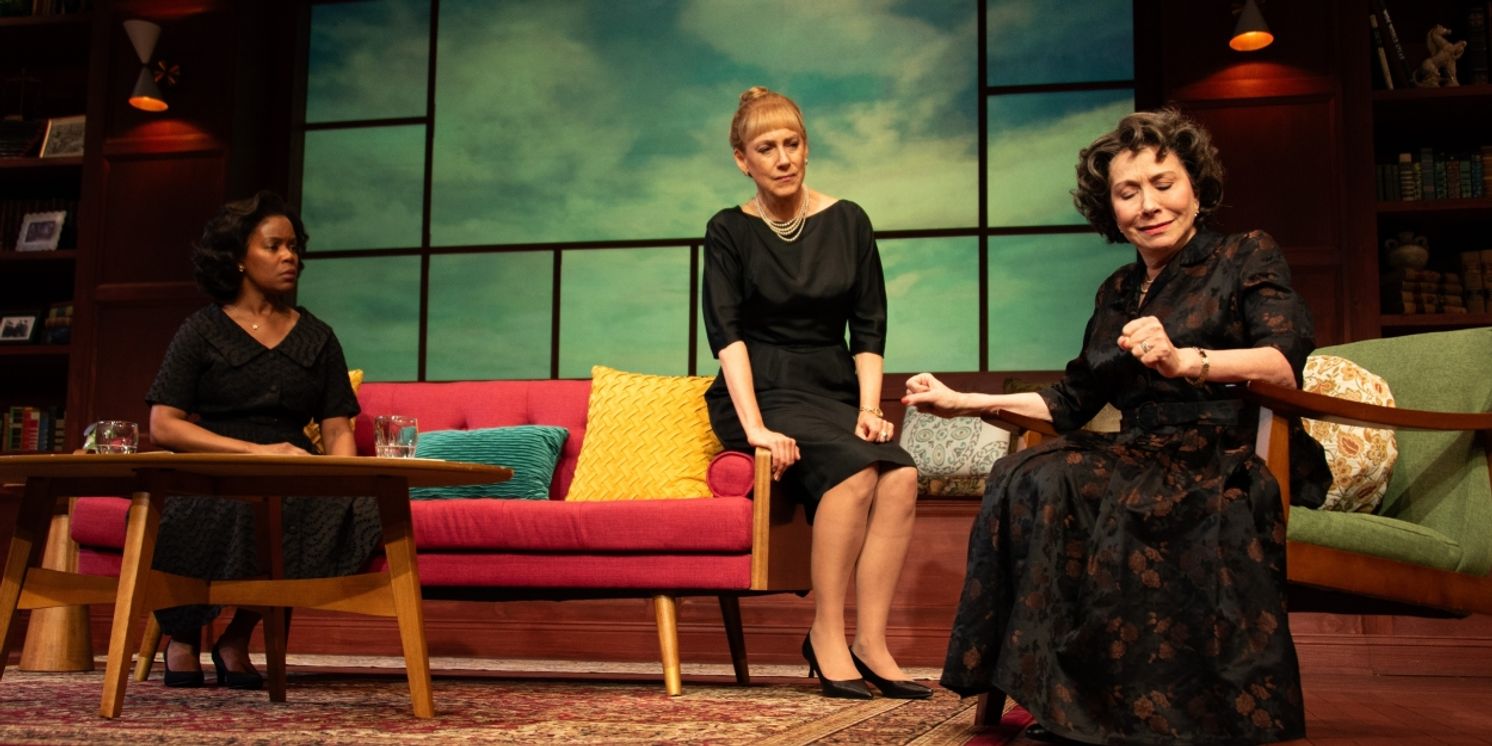Review: THREE MOTHERS at Capital Repertory Theatre
This world premiere is playing at theREP through May 12th

I’ll be the first to admit that when it came time for me to see Three Mothers, I was a bit worried what the experience would be. Watching three women grieve the loss of their sons didn’t sound like the kind of activity I would generally choose to subject myself to for entertainment— it frankly seemed like a bit of a downer. However, during its first few moments it quickly became clear that this piece is not just about grief, and it is not just about the three women encompassed within it. By looking at events in our cultural past, it holds a lens up to our present moment and forces the audience to reckon with the events of our present.
Three Mothers imagines the moments after the final funeral of three young men (one Black, two White) who were tortured and murdered by the Ku Klux Klan for helping register Black American voters during the summer of 1964. The three grieving women all retire to an apartment on the Upper West Side (beautifully rendered here by Baron E. Pugh) to sit shiva for the three boys. We see these women as they take reprieve in the privacy of the study as large numbers of guests convene in the next room over. Over the course of 90 minutes, these women who would never have otherwise met do their best to comfort one another and attempt to make sense of the tragedy that has befallen them.
Of course, providing this comfort is much easier in theory than in practice. Fanny, the one Black woman of the three (Trisha Jeffrey) plans to return to her home in Mississippi to finish the work their sons had started. Meanwhile, Anne (Cheryl Stern) tries to convince Fanny that it’s much too dangerous for her to return home and offers to do whatever she and Carolyn (Judith Lightfoot Clarke) can do to move her to New York. The trope of the well-meaning White woman is on full display here as Fanny insists that she must return to her younger son and her hometown. The tensions between race and class live at the heart of this piece, but they do not necessarily result in dramatic conflict; one particular moment that stuck with me was the simple action of Anne slipping a coaster under Fanny’s water glass.
In fact, I would argue that the show’s greatest flaw is that it lacks conflict. The plot revolves around an event that has occurred in the past, and therefore the women have very little to do but regurgitate what has already happened and recount other grisly details about the state of America in the 1960s. Every twenty minutes it seemed like there was mention of another firebombing, another church burned to the ground, another hate crime, another bomb threat— almost as if the audience can’t be trusted to understand how bad things really are.
Where the show thrives, however, is in its characters and especially in its performers. Trisha Jeffrey, Judith Lightfoot Clarke, and Cheryl Stern are absolute powerhouses and bring such brilliant and varied approaches to the grief they are all experiencing. It cannot be overstated how hard these three are working to keep the show from falling into the holes its writing has dug for itself. They find so many moments of lightness and humor throughout that the piece never once feels like a slog. Some of this credit must also be owed to the production’s director, Petronia Paley, who has clearly put a lot of thought into her approach to this piece.
All of this said, I think the piece genuinely succeeds at what it’s trying to do. We get to see three women from completely different walks of life provide strength to one another. The audience is reminded of both the world of 60 years ago as well as the way things have not necessarily improved in the way they should have since then. Toward the end of the show, Anne is lamenting the way the US government is so keen on being a savior in other countries by fixing their problems and resolving their battles while ignoring the problems happening on their own soil:“Don’t they know a war is being waged here?” This play is not just about our past, but also our present: 60 years later, racial discrimination and hate crimes have not stopped; the Black Lives Matter movement is still seen as a radical thought by many; the National Guard is being deployed on college campuses to harass and break up peaceful protests. We have not moved as far as many think we have. There is still a lot of hate in this world, but what Three Mothers reminds us is that deep pain can lead to resilience, and holding each other up through the roughest times is perhaps the greatest gift we can provide.
Reader Reviews
Videos

